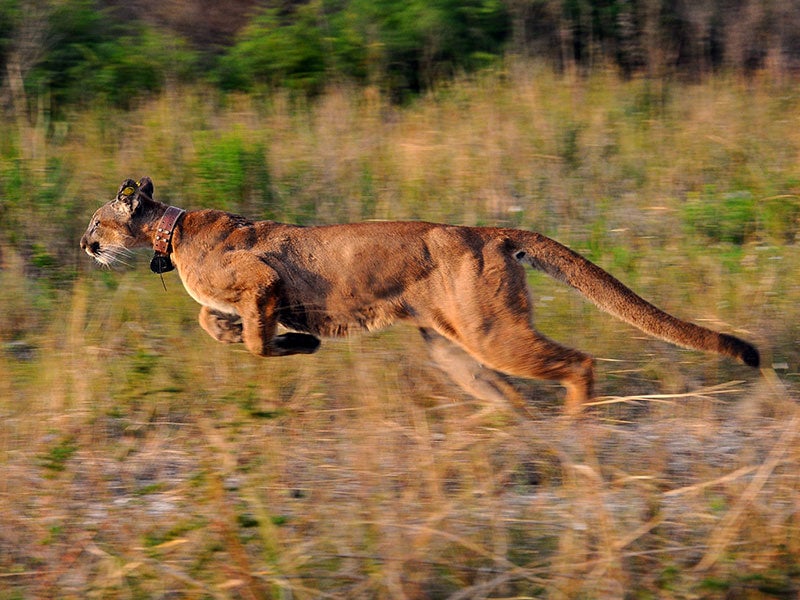Earthjustice goes to court for our planet.
We’re here because the earth needs a good lawyer.
Florida’s Wetlands Win Protections in Court
This page was published 2 years ago. Find the latest on Earthjustice’s work.
What just happened: Earthjustice had a major win in a federal lawsuit to protect Florida’s wetlands, which give life to a vast array of plants and animals, including the critically endangered Florida panther. The ruling halts the state from issuing permits to disturb wetlands, including for two massive developments that would have destroyed thousands of acres of panther habitat.
Why it matters: Our planet is in the midst of a biodiversity crisis, with scientists warning that nearly 40% of species could face extinction by 2100. Florida’s wetlands host a rich assortment of flora and fauna – but despite their importance, the Trump administration handed off wetlands permitting authority to Florida state officials, who have a terrible track record of protecting endangered species. Earthjustice challenged that decision, and the Feb. 16 court ruling struck down Florida’s permitting program.
The Plight of the Panther
- Incredibly endangered: Biologists estimate that only 120 to 230 Florida panthers remain in the wild. They once roamed the southeast U.S. but now live only in a small wedge of South Florida.
- A ticking clock: This ruling comes at an urgent moment when Florida was poised to issue permits for sprawling developments called Bellmar and Kingston that would have caused irreparable harm to panthers and imperiled crested caracara birds.
- High-stakes development: The projects were planned for a key wetlands area and critical wildlife corridor where the panthers remain in their last territory on Earth. The U.S. Fish and Wildlife Service estimated that the projects could kill as many as 26 panthers a year from vehicular collisions.
- Bigger than the panthers: Their status as the panthers’ stronghold is just one of many reasons Florida’s wetlands urgently need protection. They provide a home for many of the state’s 139 endangered or threatened species. They also play a key role in controlling flooding, buffering hurricanes, and filtering pollution from drinking water.
Our Legal Argument
- Origins: This case began in late 2020, when the Trump administration gave Florida the power to approve wetlands permits. Among many other blunders, the administration failed to ensure that the state program would adequately protect endangered species.
- A boon for developers: Florida developers had long called this state takeover their “Holy Grail,” because they could use their political influence to speed up development in environmentally sensitive areas.
- Going to court: Representing seven environmental groups, Earthjustice sued the EPA, warning that the handover would “degrade and ruin Florida’s natural landscape.”
- ESA compliance: Our lawsuit argued that because the federal government failed to comply with the Endangered Species Act when approving Florida’s permitting program, it could not legally allow Florida to take over permitting.
What the Court Said
- The Trump administration broke the law: The decision strips away Florida’s ability to rubberstamp sprawling developments, mines, and other projects that harm federally protected wetlands.
- What developers must do: The ruling requires developers seeking permits to go back to the federal government, where projects will have to be reviewed for their impacts to imperiled species.
- Good news for big cats: The two pending developments that would have torn through the Florida panther’s habitat will need to seek new permits.
- Setting a precedent: If other states seek wetlands permitting authority in the future, this ruling will require the federal government to comply with the Endangered Species Act in order to approve the state programs.
In this fight and all our fights, we represent our clients for free. Supporters like you make this work possible.
